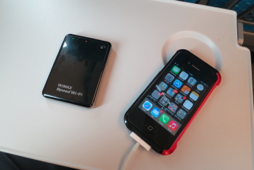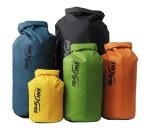This section is dedicated to things I planned for, and other that I discovered during the trip itself.
I do not like to prepare a lot for trips, and this one, despite being much bigger than anything I had done before, was no difference. I packed just a few hours before leaving, and I basically let my tour operator to sort out all the details, and draft a plan for my stay in Japan.
I do not like to prepare a lot for trips, and this one, despite being much bigger than anything I had done before, was no difference. I packed just a few hours before leaving, and I basically let my tour operator to sort out all the details, and draft a plan for my stay in Japan.

I was really impressed by the fantastic job they did for me. I received at home a large package including a small (but pretty functional) backpack with their logo, baggage tags, dozens of pages of text about Japan culture, food and other interesting elements for a traveller (especially a first-timer like me) and 20+ envelopes, each one with the details, vouchers, maps and tickets for every single day of my stay.
The most impressive part for me that while I had never visited Japan before, I speak maybe 20 words in Japanese and I was mostly on my own, everything worked perfectly, including multiple side trips where I visited remote places using a combination of different transportation.
On top of that I am a Vegetarian and I had other special requests for my stay, and they delivered in spades.
Very Recommended!

My guidebook (the excellent "DK Eyewitness Travel Guide: Tokyo") had already warned me about the fact that most Japanese ATM won't work with credit/debit cards issued outside of Japan, no matter what they show in terms of logos.
Unfortunately things were even worse - even 7/11 (which used to accept Maestro cards) has stopped working since April, and therefore the only way I had to get some money was using credit card at the Postal Office ATMs.
Oddly enough, paying for goods or services with credit card always worked, but if you want cash you are out of luck.
japan-guide.com has more details here.

Despite vague claims on their website, my Vodafone SIM didn't operate at all in Japan. This means that my iPhone was usable only as a paperholder, because without cell signal I couldn't even use geolocalization.
Luckily I had already contacted Rentafone Japan before leaving Italy, and they had one of their wifi pocket routers sent at my hotel (it arrived one hour after I had checked in).
This company can rent you either a simple phone (not a smartphone) with Japanese number, SIM, and contract, or (and/or, actually) two different modems that you can use with up to 5 devices via WiFi.
Everything worked flawlessly, I sent it back to them the evening before my return, and I am quite satisfied with everything. It allowed me to use internet (and so Google Maps, for example) in all urban areas and this was tremendously helpful.

This may look stupid, but it was actually a problem for me in Japan.
I knew already that there is some social taboo about blowing your nose in public (this made me very self-conscious btw, and after a few days I tried to hide any noseblowing activity on my part, even if nobody ever flinched while I did it in public).
The first problem I had was that you can't buy pocket tissues in Japan. They just don't exist. You have a choice between moistened tissues (like the ones you get on a plane), or "paper napkins carefully designed not to work very well to blow your nose" (and priced so that you'll probably prefer to use Yen banknotes anyway) or Scottex and similar brands tissues... the boxed version you will keep in your bathroom to blow your nose in peace behind closed doors... but these can't really replace pocket tissues.
What you can buy in spades (and choose among several types and brands) are the surgical masks that apparently solve (at least for Japanese) the whole running nose problems. Allegedly these filter both irritants like dust, and germs, and therefore are the first (and possibly only) line of defense against the common cold.
But the lack of tissues "as a product" has another problem that I - again - discovered after a bit of time. Namely, the impossibility to find garbage bins in Japan. I believe that they have very strict rules about garbage collection/separation, and therefore the idea of "unsorted garbage" piling up in a publicly accessible garbage bin is unthinkable.
You get plenty of extremely specialized bins, for empty bottles and cans, for example.
But if you happen to wonder where to throw your banana peel, for example, the best bet is to go back to the hotel and drop it in the room bin.

I had a couple of days of rain, but in general the weather was fine, even if often overcast.
In order to be ready for anything, I packed a couple of dry packs (you can also find these as "dry bags" or "dry sacs"). This are containers that are guaranteed to be waterproof. They are easy to open and close (and when empty they occupy very little space).
These can be used for anything you don't want to get wet... like your passport, tickets and vouchers, and any electronic, included your camera spare batteries.
In my experience, the vast majority of backpacks do not hold well against strong rain showers. I therefore suggest to always keep a couple of these in the backpack itself, so that you can quickly store anything of value in those in case of a storm.

Personally I went for a multi-elements type, very similar this one from Amazon. This costs way less than the "integrated" models, you can take with yourself only the one or two pieces you need for the country you are visiting, and being less heavy than the fully integrated ones usually fit better in the power plug.
Just remember to check if all your electronics can work with Japan's voltage (110v)